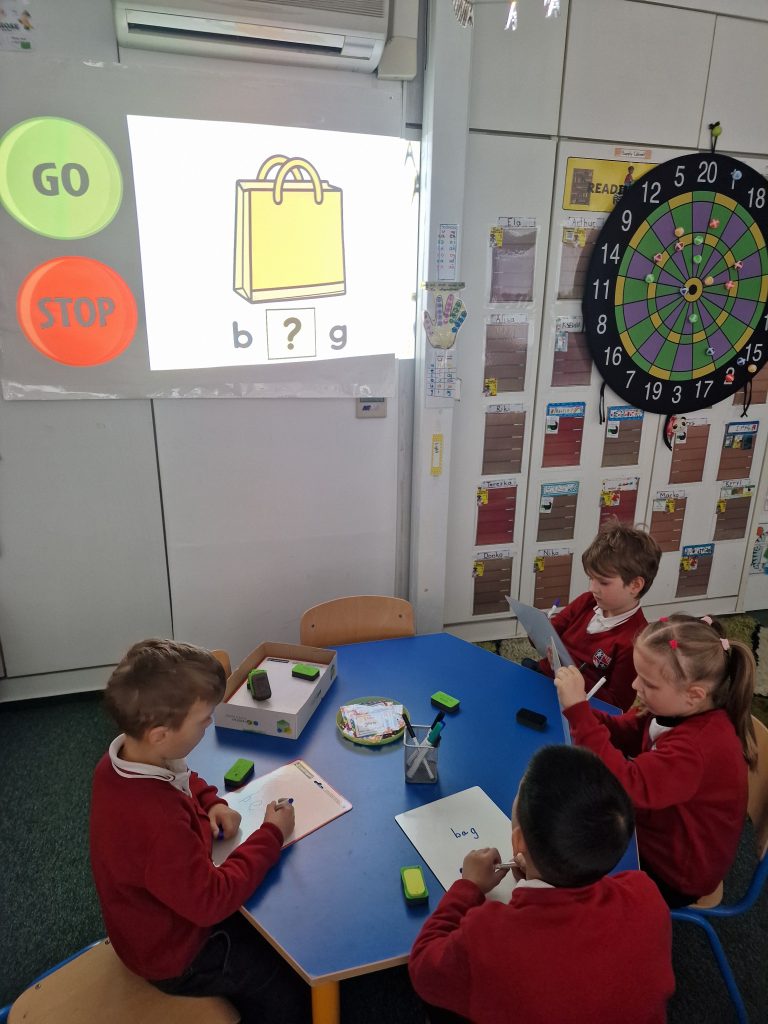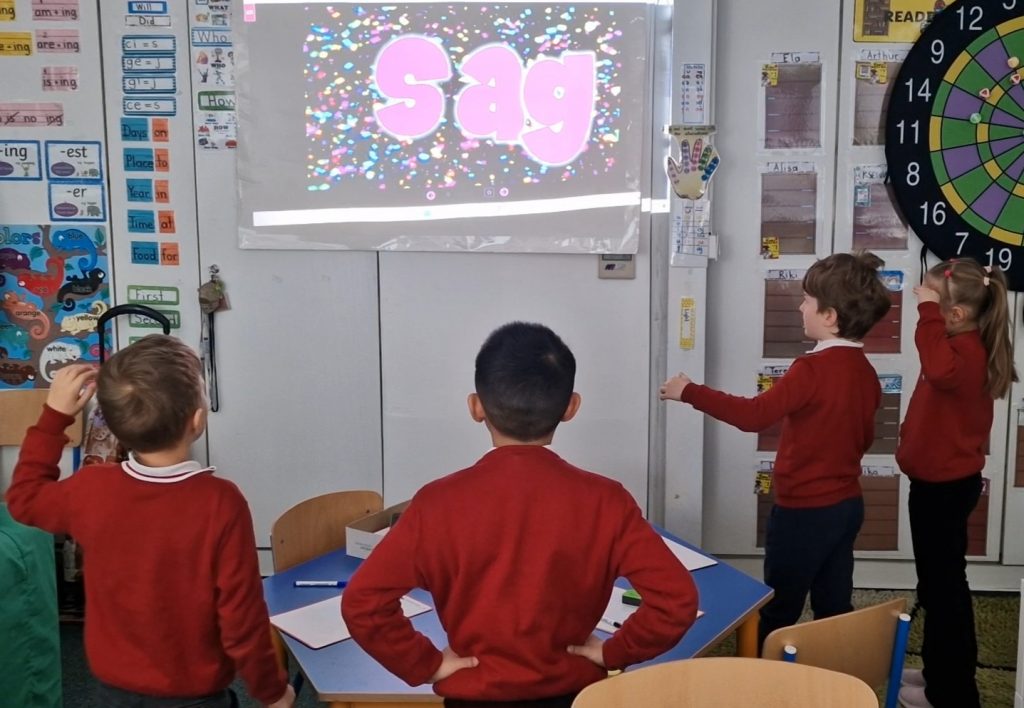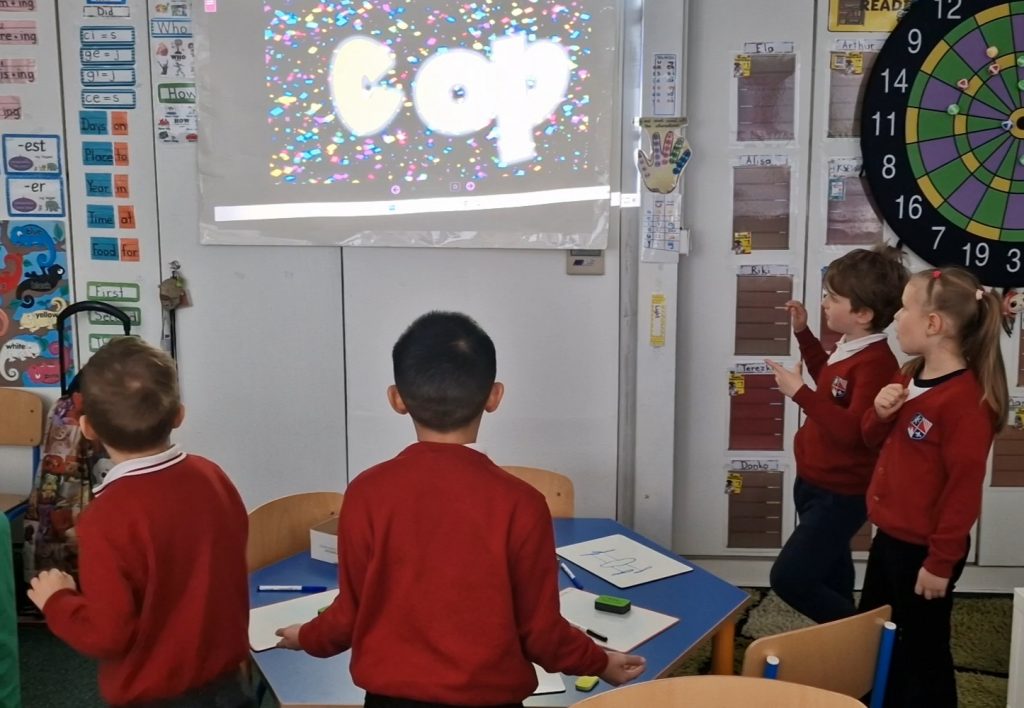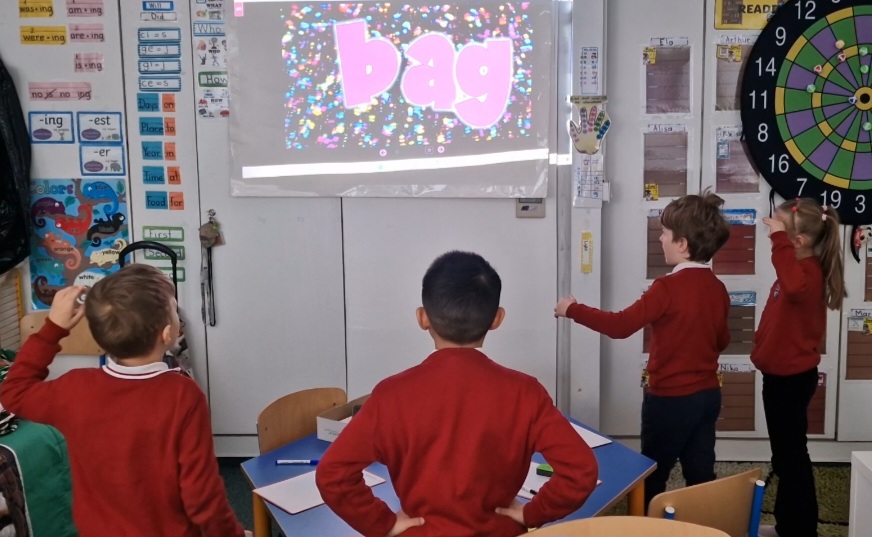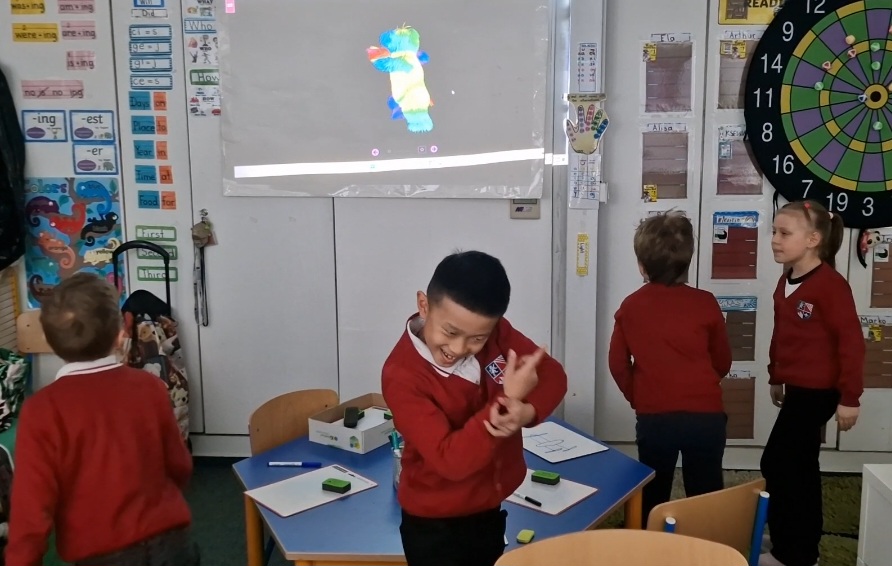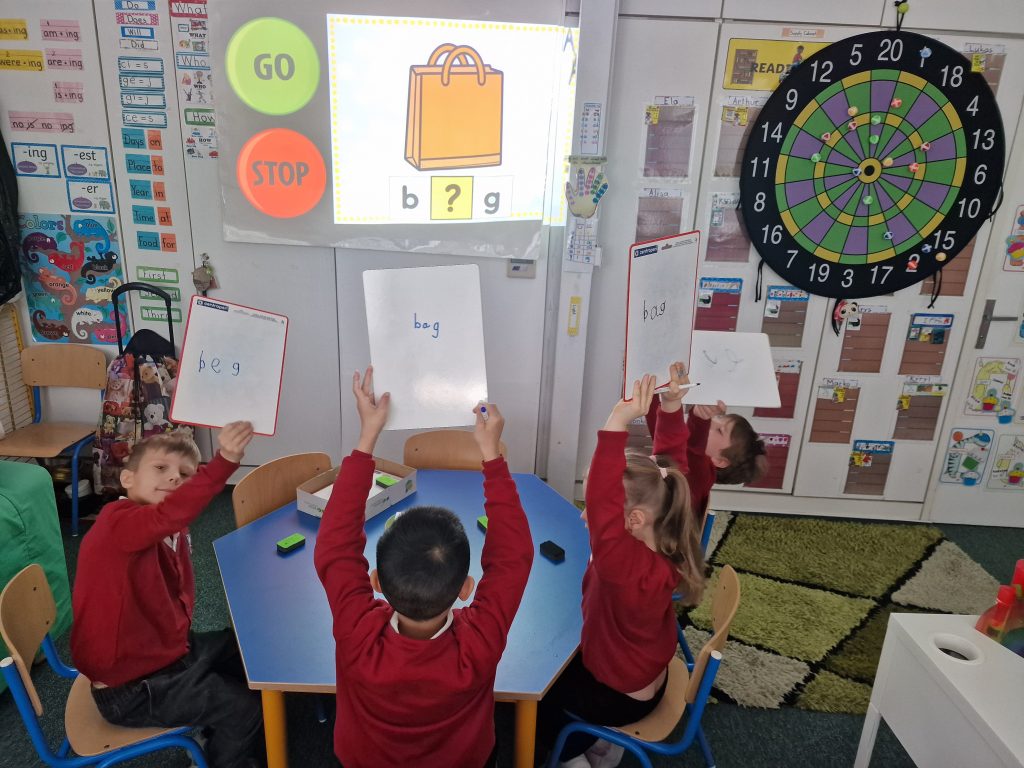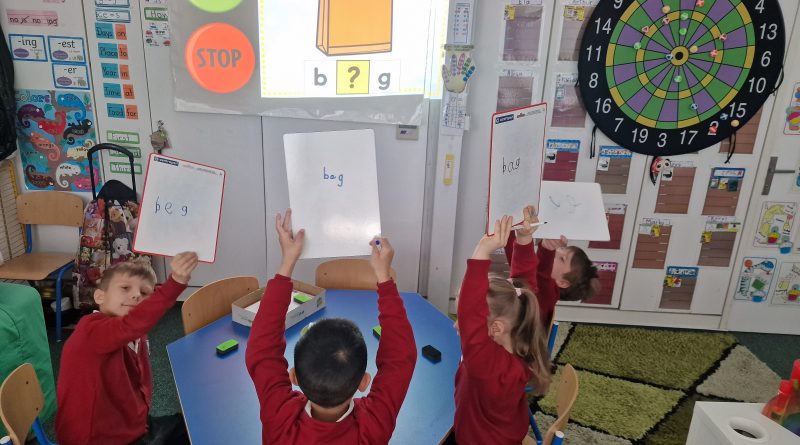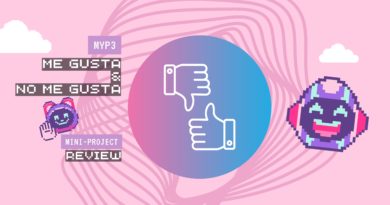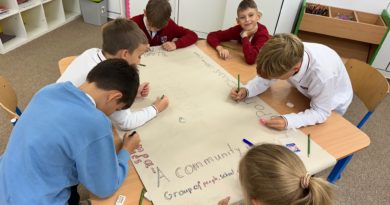Words Come Alive!
Learning to read is an exciting journey that starts with listening to sounds and playing with words. In Year 1 and Year 2 during the EAL lessons, children move from learning letter sounds to reading simple sentences and understanding short stories. This process takes time and lots of practice, and every step matters.
Before children can become fluent readers, they need to develop strong early reading skills. These skills are like building blocks. When children practise them regularly, they become more confident and ready to read on their own. At school, we work on these important areas every day through songs, games, movement, and reading activities.
Here are the most important components of early reading that children work on in Year 1 and Year 2:
- Recognising and saying letter sounds (phonics): Knowing what sound each letter makes.
- Hearing and identifying beginning, middle, and ending sounds in words: For example, in the word cat, hearing the /c/, /a/, and /t/ sounds.
- Blending sounds to read simple words: Putting sounds together to read CVC words (consonant-vowel-consonant) like dog, hat, or sun.
- Segmenting words into sounds: Breaking words apart into their individual sounds.
- Learning sight words (also called high-frequency words): Words that are often used in reading and writing, such as the, you, my, was.
- Phonological awareness: This means being able to hear and play with sounds in words—like rhyming, clapping syllables, or finding the first sound in a word.
To help children practise these skills in a fun way, we often use movement games and music.
One of our favourite activities was a game called Freeze Dance. The children danced together with a colourful, animated rainbow monster. When the monster shouted “Freeze!”, everyone had to stop—and quickly read a few words that popped up on the screen. The children loved it! This active game helped them connect what they see with what they hear and say. It also supported their reading fluency and listening skills.
Phonological awareness starts developing from a young age and continues to grow through play, songs, and reading. The more children hear and play with sounds, the easier it becomes for them to read and write. You can support this at home by reading together, singing rhyming songs, pointing out letters in books or on signs, and playing sound or word games.
Together, we help children build strong reading skills step by step—with lots of fun along the way!
Ms. Eva Gogova
